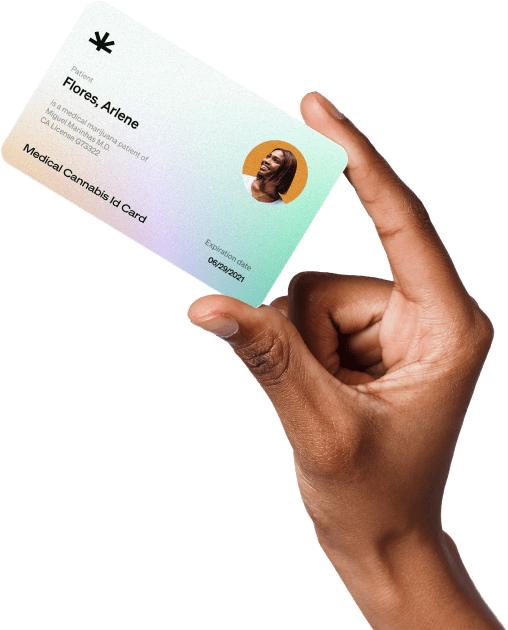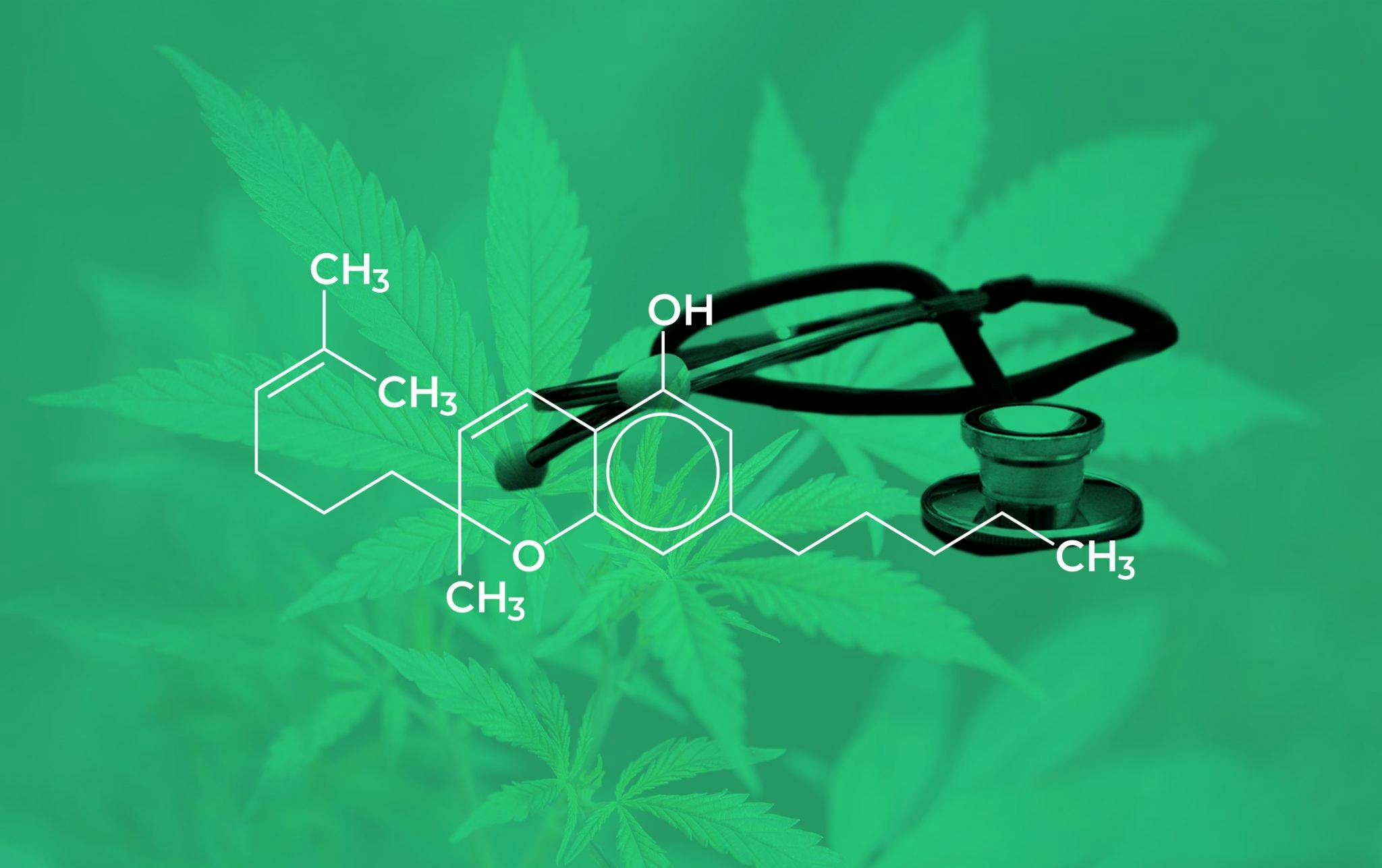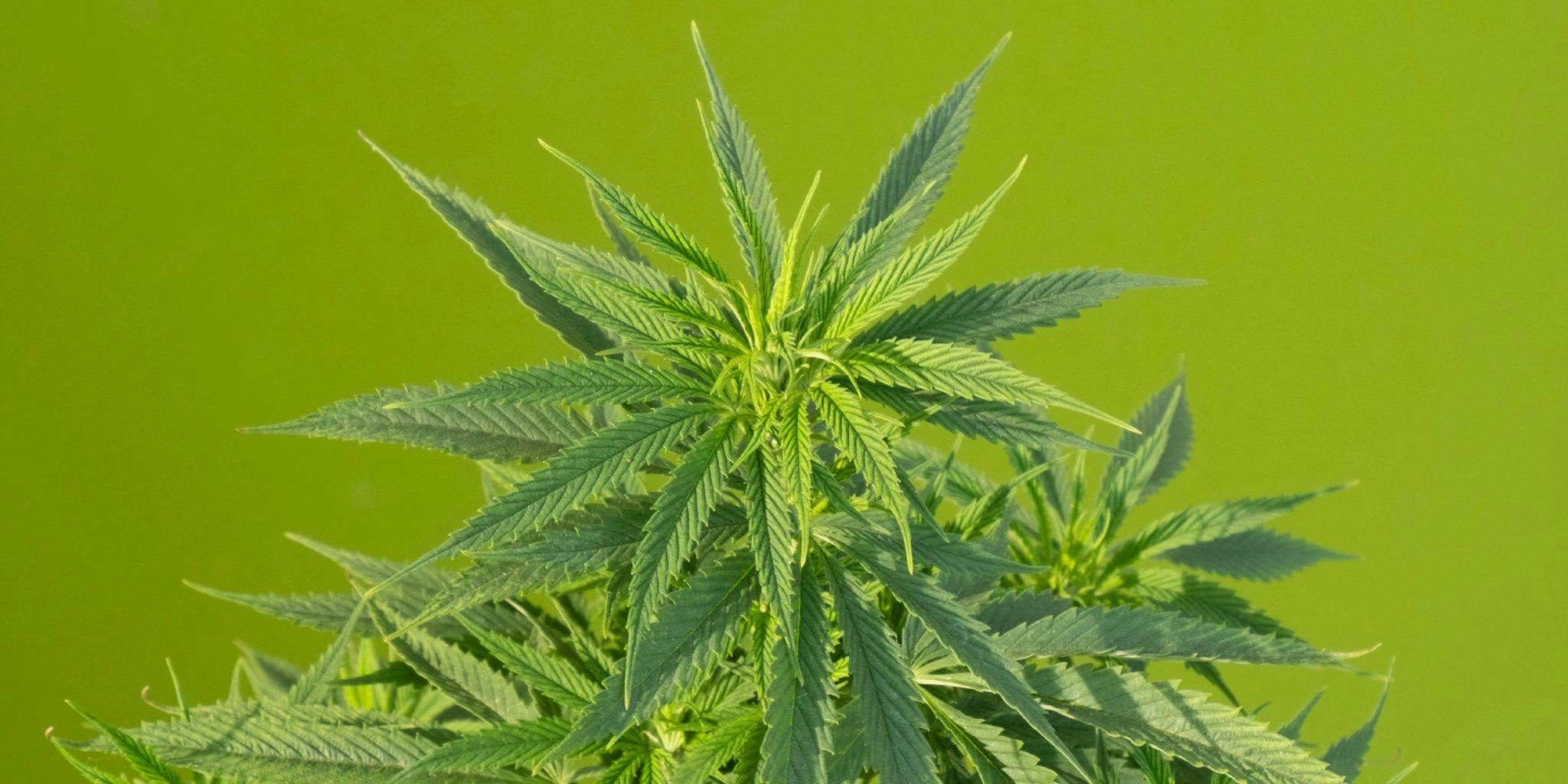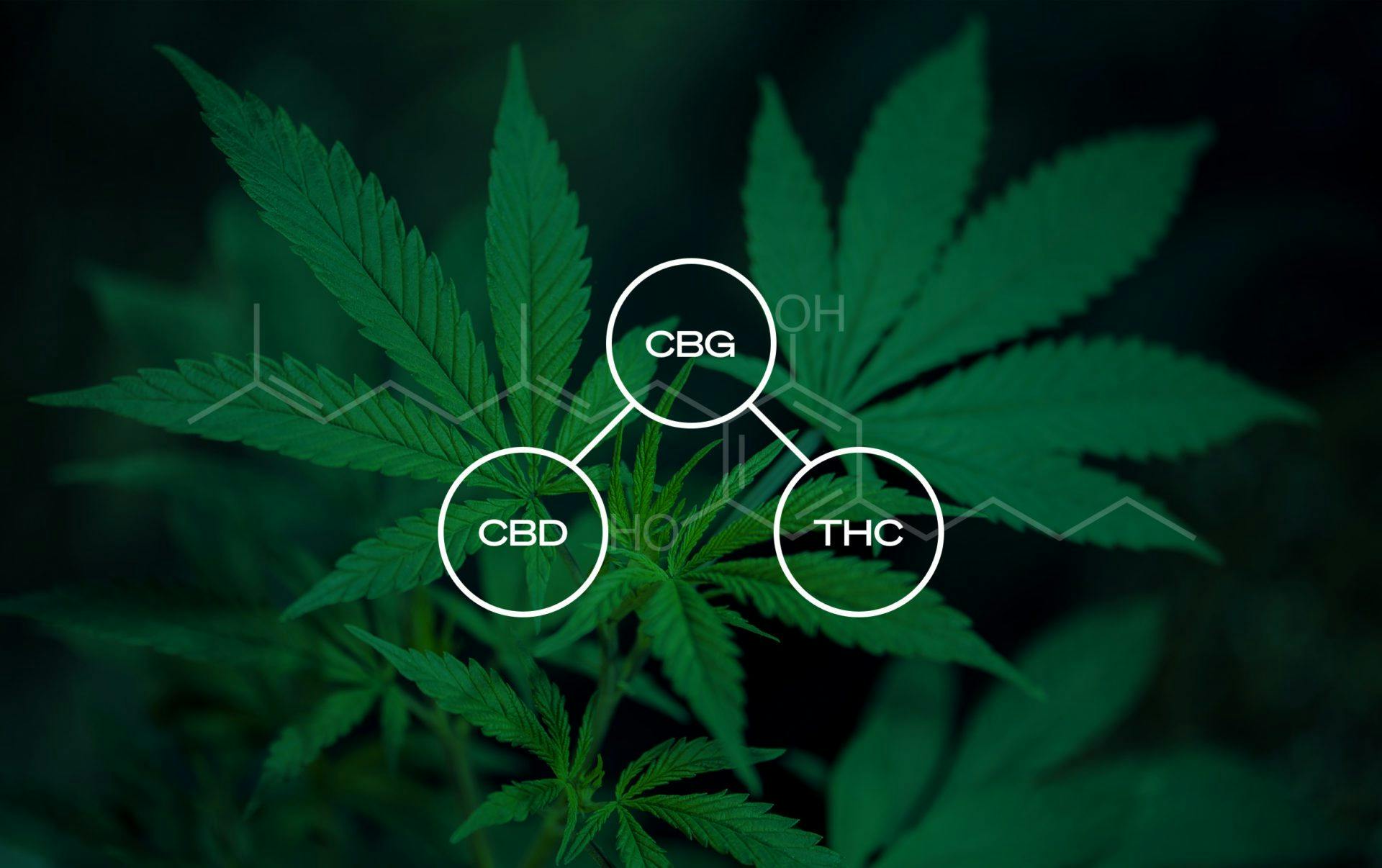What Is CBN? Guide to the Cannabinoid

Content reviewed by

Dr. Lewis JasseyMedical Director - Pediatric Medicine
There are over 100 potent cannabinoids in the cannabis plant, and each offers different medical possibilities that scientists are just beginning to discover. One of these cannabinoids is cannabinol (CBN), sometimes called the sleepy cannabinoid because it is particularly beneficial for treating insomnia.
Learn all about the CBN, the sleepy cannabinoid, how it works, and how you can integrate its therapeutic benefits into your everyday health regimen.
Get your medical marijuana card
Connect with a licensed physician online in minutes.
How Cannabinol Works
Unlike many other cannabinoids, cannabinol (CBN) does not stem from cannabigerol (CBG). Instead, CBN is a tetrahydrocannabinol (THC) metabolite formed as cannabis ages. THC degrades into CBN over time and exposure to ultraviolet (UV) light.
CBN retains some THC’s psychoactivity but is significantly less psychoactive than THC. THCA converts into cannabinolic acid (CBNA), converted into CBN when decarboxylated or heated.
Benefits and Uses
It’s no secret that CBN is the “sleepy cannabinoid.” Still, beyond insomnia, CBN can also be used to treat multiple sclerosis (MS), Crohn’s Disease, chronic pain, and many other challenging conditions.
However, there is much debate surrounding CBN’s effects. Some claim it has a slight psychoactive effect, while others suggest barely any effect.
CBN could be useful as a supplemental treatment for the following issues:
- Pain. CBN is a mild painkiller and anti-inflammatory.
- Seizures. CBN is shown to be an anti-epileptic that provides a sedative effect and could help treat seizures and convulsions.
- Loss of Appetite.Appetite stimulants may be beneficial for people experiencing chemotherapy-induced nausea and appetite reduction.
- Viruses and Illnesses. Antibacterial – CBN could slow bacterial growth, making it worthwhile to treat superbugs like MRSA.
- Insomnia.CBN has sedative effects, which have been reported in some instances to be stronger than those of Valium, making it a cannabinoid of interest when it comes to replacing prescription sedatives.
In addition, CBN shows even greater promise than THC and CBD as a neuroprotectant and treatment for glaucoma. A CBN-rich formula developed by InMed Pharmaceuticals shows that CBN can lower intraocular (inner eye) pressure. CBN’s therapeutic effects for diabetes and hypertension mean it acts as a possible treatment for glaucoma.
Possible Side Effects and Interactions
The side effects of CBN are presently unclear. Insufficient research exists for scientists to say whether CBN causes similar side effects to CBD or other cannabinoids. However, one of the main reasons people use CBN to reduce insomnia may be viewed as a side effect. Be aware that CBN can make you intensely sleepy. Do not operate a motor vehicle or other machinery when using this cannabinoid.
CBN and other cannabinoids may interact with certain prescription and over-the-counter medications. To be safe, speak with a trusted medical professional before combining CBN with other drugs.
How to Use
If you’re a cannabis grower, wait for your cannabis to age sufficiently before harvesting. Let the trichomes deepen to a rich amber color before cutting the plant. Aging cannabis is the best way to ensure an end product rich in CBN.
When purchasing cannabis products, keep a lookout on their test labels for CBN content, and pick accordingly. Products high in CBN may also be high in THC. Apply a drop or two to your wrists or forehead at bedtime for a potentially more restful night’s sleep. CBN tinctures, consumed sublingually by placing a drop under the tongue, may be even more effective than sedatives at combating insomnia.
You may also blend tinctures and oils into beverages and soups. A drop of CBN tincture mixed with relaxing chamomile tea may produce intense sedative effects without the grogginess that frequently results from sleeping pills.
Cannabis Strains High in CBN
CBN is found in trace amounts in recently-grown cannabis and in greater quantities in aged and degraded cannabis and traditionally produced hashish. The resin that collects on the screen can be high in CBN for those using pipes.
Several cannabis strains (cultivars) contain high concentrations of CBN. Here are some popular strains that have tested relatively high for their CBN levels, which is often a result of their high THC content:
- Bubble Gum
- Super Green Crack
- Purple Cadillac
- Durban Poison
- Blackberry
- Animal Cookie
- Death Bubba
- Banana OG
- Platinum Kush
- Mr. Nice
Note that CBN-rich strains do not contain excessively high levels of it. A cannabis strain considered high in CBN may not even have 1% of the cannabinoid, as opposed to THC-heavy strains that may contain 20% or higher concentrations. But a little CBN goes a long way, and even a fractional content of the cannabinoid could yield powerful benefits.
CBN is one of many therapeutic compounds found in the cannabis plant. Experience them all safely and legally with a medical marijuana card. Leafwell’s qualified physicians will meet you in a convenient online appointment and get you started on your path to discovering cannabis medicine.
Get Your Medical Card
Connect with a licensed physician online in minutes.
Frequently Asked Questions
What is the difference between cannabidiol and cannabinol?
One of the main differences between cannabidiol (CBD) and cannabinol (CBN) is the research conducted. CBD has been extensively studied for its therapeutic properties, while research on CBN is in the early stages.
CBD does not work directly on CB1 receptors, meaning it does not have the same psychoactivity level as THC. CBN, a degraded version of THC, seems only to stimulate CB1 receptors slightly, which may cause some sleepiness. CBD may be more stimulating in low or moderate doses, as it desensitizes CB1 receptors.
Furthermore, CBD and CBN differ in their origins and chemical structure. CBD is usually derived from hemp, whereas CBN comes from cannabis.
What is CBN good for?
CBN’s efficacy for conditions like pain and insomnia is limited but useful. To experience the synergistic entourage effect, use CBN with THC, CBD, and the “sleepy” terpenes like linalool, myrcene, and humulene. CBN could be a potent antioxidant and neuroprotectant when combined with cannabinoids like cannabichromene (CBC) and CBD.
Is CBN psychoactive?
As this “sleepy cannabinoid” has strong sedative effects, it cannot be classified as non-psychoactive like CBD often is. Therefore, CBN is considered mildly psychoactive but does not produce the same high level as THC.



